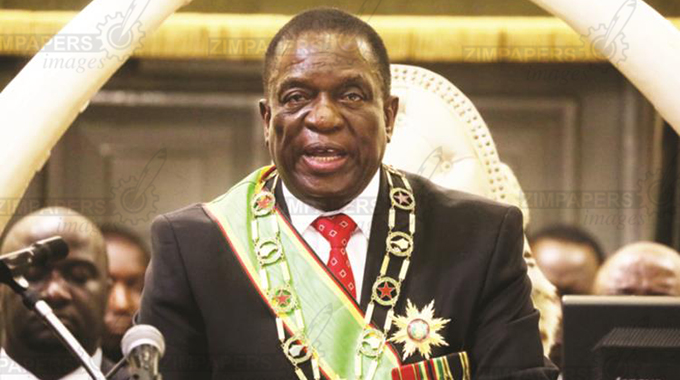20 reconnect with families after 40 years

Patrick Chitumba Midlands Bureau Chief
TWENTY Zimbabweans, who lived in South Africa without contact with their families for periods of up to 40 years, have been reunited with their kith and kin back home.
The International Committee of the Red Cross (ICRC) tracked down the 20 — some of whom had changed names and started a new life and families in South Africa without notifying relatives — using its “Trace the Family” programme based on data and pictures provided by relatives.
Most families had given up searching for the migrants, assuming they had died on the other side of the Limpopo.
In an interview on the sidelines of a recent Zimbabwe Red Cross Society (ZRCS) media engagement workshop in Gweru, ICRC representative Mr Hilton Zvidzayi said they started a pilot project called the “Missing and Deceased Migrants Project” that helps migrants reconnect with their families.
The pilot project, he said, started in Gwanda and Zaka districts recently and has seen 20 Zimbabwean migrants in South Africa being successfully reunited with their families back home.
“We are running a pilot project to understand the needs and challenges in terms of reuniting missing and deceased people with their families. So we had 67 cases reported in Gwanda and 33 cases reported in Zaka.
Of these cases, we managed to solve 20 which have been closed successfully with our intervention after we managed to collect data in Zimbabwe and take it to South Africa and managed to reunite these 20 people with their families back home,” said Mr Zvidzayi.
He said eight cases were solved and the migrants returned to their homes in Gwanda and Zaka after having been away without communication for decades.
“So right now, we have 72 pending cases where we haven’t been able to identify the people because we are still to go to South Africa with the data we collected. But our tracing officer will go to South Africa soon with the hope of completing these cases as a matter of urgency,” he said.
“We are encouraging people to come to the Red Cross for this new programme and leave details to be put into the database for us to use in tracing their missing relatives. This is a fairly new programme in this country. Globally, however, there are 16 000 cases ICRC and its partners are working on and we are confident of reuniting families,” he said.
This comes at a time when South Africa recently started compensating ex-Wenela employees. These two seemingly unconnected events have opened a new chapter of an untold patch story of Zimbabwe’s history.
It is a story that needs to be told in its fullest as others had changed names and identities but somewhere in one corner of their minds, they were haunted by that sense of belonging to their original families.
Driven by the ancient vision of life to always identify with their ancestral lineage they found themselves coming back home after 40 years.
As to whether they will fit into their new lives only time will for tell, for 40 years is never a joke, it is a generation.
South African gold producers have asked Zimbabweans who used to work there as mine workers in the 1970s and contracted the fatal lung diseases silicosis and tuberculosis to come forward and benefit from a $400 million compensation fund.
This comes after the settlement of a far-reaching class action in South Africa that follows a long legal battle by miners to win compensation for illnesses, they say they contracted over decades because of negligence in health and safety.
The mine workers were not provided with adequate protection during and after apartheid rule ended in 1994, and include Zimbabweans who back home were said to have gone to “Wenera.”
Representatives of Southern African Miners Association (Sama) in Zimbabwe have said close to 4 000 ex-Wenela workers have registered for terminal benefits.
Wenela, acronym for Witwatersrand Native Labour Association in South Africa, closed in the early 1980s and thousands of locals who once worked there are poised to receive a windfall once pension talks are concluded.
Xulu Attorneys of South Africa have been engaged to represent the former workers, drawn from Botswana, Lesotho, Malawi, Mozambique, Namibia, Swaziland, Zambia and Zimbabwe, among others.
The ex-workers will at a later stage be expected to go for X-rays so that they get compensated if they contracted lung diseases such as silicosis during their period of employment, a process which will be funded by the World Bank, according to Sama Zimbabwe representative Mr Lungelwe Mkwananzi.
Wenera was the Shona version of the acronym, WNLA, which stands for the Witwatersrand Native Labour Association — the recruiting body of the South African Chamber of Mines.
The companies involved are Harmony Gold, Gold Fields, African Rainbow Minerals, Sibanye-Stillwater, AngloGold Ashanti and Anglo-American South Africa.









Comments